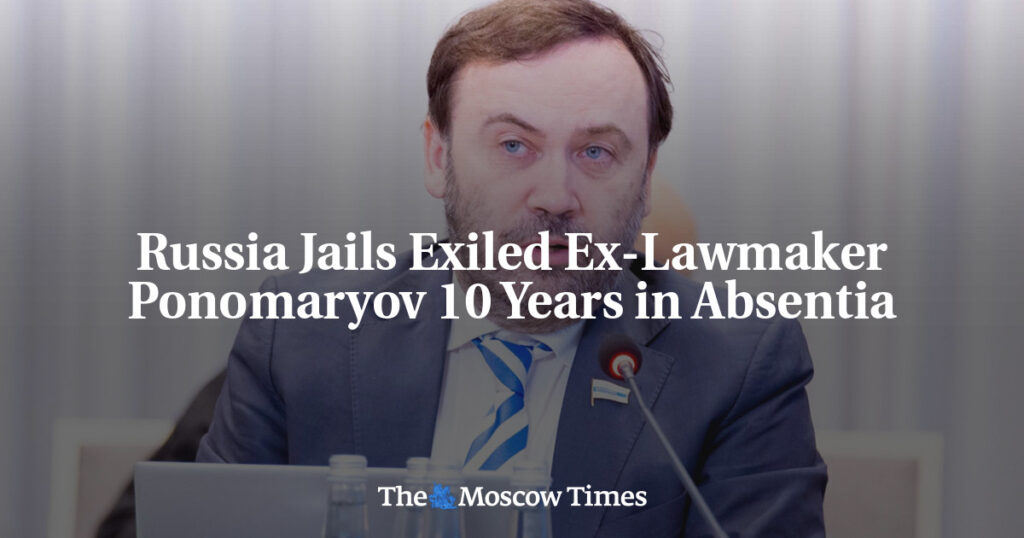Exiled Anti-Kremlin Figure Ilya Ponomaryov Sentenced to 10 Years in Absentia by Moscow Court
In a significant and politically charged ruling, a Moscow court has sentenced former Russian lawmaker Ilya Ponomaryov to 10 years in prison in absentia on charges of “justifying terrorism” and disseminating “fake” information about the Russian military. Ponomaryov, a well-known critic of the Kremlin, has been living in exile since 2016 and currently serves as a member of a Russian shadow parliament based in Poland.
The Charges: From Censorship Violations to Terrorist Allegations
The legal action against Ponomaryov stems from a video interview dated March 2022, in which he reportedly provided false information about the Russian military out of “political hatred.” Although details regarding the “justifying terrorism” charges remain sparse, independent news outlet Medizona reported that Ponomaryov was accused of expressing support for arson attacks on military installations within Russia.
Russia’s draconian wartime censorship laws, enacted soon after the invasion of Ukraine in February 2022, have been a tool for silencing dissent. These laws criminalize spreading information that contradicts the government’s narrative about military operations.
Background: A History of Defiance
Ponomaryov is no stranger to controversy or to challenging the Russian government. In 2014, he was the sole member of the State Duma to vote against the annexation of Crimea, a stance that put him at odds with the mainstream political landscape in Russia. He faced embezzlement charges and chose to go into exile in 2016.
Since Russia’s full-scale invasion of Ukraine, Ponomaryov has been vocal in his calls for a violent revolution to overthrow President Vladimir Putin. This rhetoric, combined with his political activities, has led Russian authorities to label him a “foreign agent” and place him on a list of “terrorists and extremists.”
Court Ruling and Consequences
The Second Western Military Garrison Court in Moscow not only sentenced Ponomaryov to a decade behind bars but also imposed a four-year ban on his ability to manage websites or engage in social media activities. Initially, prosecutors had sought a harsher sentence of 14 years.
The ruling exemplifies the increasing measures Russia is willing to take to suppress opposition voices and further consolidate its power. Amidst this, independent journalism and other forms of dissent are finding themselves increasingly cornered.
Context: The Moscow Times and Independent Journalism
The backdrop to these events is a wider crackdown on independent journalism in Russia. For instance, The Moscow Times, a prominent independent news outlet, has been labeled an “undesirable” organization and previously a “foreign agent.” These designations have created an environment of legal peril for its journalists and intensified state scrutiny.
Despite these challenges, The Moscow Times continues to strive for accurate, unbiased reporting on Russia. With continued support, it aims to stand against these repressive measures and uphold the principles of free press and open journalism.
For more information on the Moscow Times and to support their important work, visit their official website.
Conclusion
Ilya Ponomaryov’s sentencing is a stark reminder of the lengths to which the Russian government will go to quash dissent. As figures like Ponomaryov continue their fight from afar, the struggle for truth and freedom of expression within Russia becomes ever more arduous. Independent journalism remains a cornerstone of this battle, deserving robust support from the global community.
